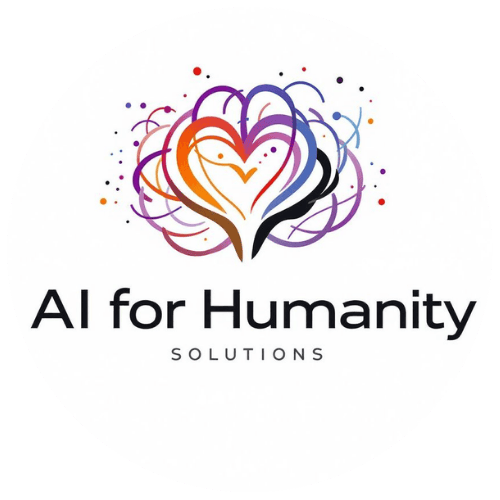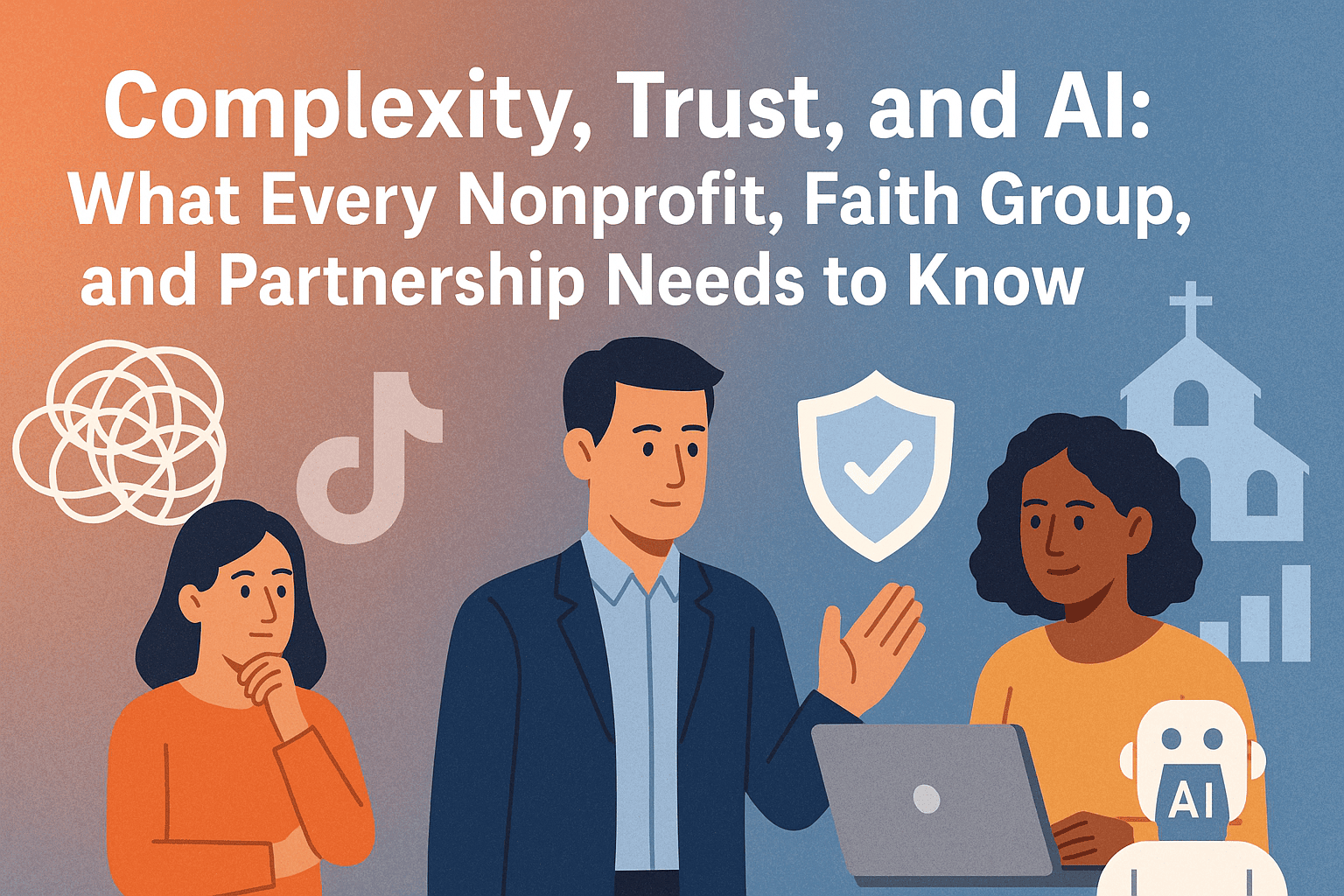

Let’s be honest: the world feels more complicated than ever.
Whether you’re running a nonprofit, leading a church youth group, or building a public-private partnership, you’re navigating new technologies like AI, ever-evolving social platforms like TikTok, and a flood of information that’s hard to keep up with.
The truth? Leadership today isn’t about pretending to have all the answers—it’s about building trust and making smart, ethical choices in a complex world.
Who This Article Is NOT For
Let’s get this out of the way:
- If you’re looking for “get rich quick” AI hacks…
If you want shortcuts to viral fame… If you're hoping to use technology without thinking about its human impact…
Also, if you believe leadership is just about charisma or having the loudest voice in the room, you’ll probably be disappointed.
And if you want to ignore tough questions about ethics, fairness, or who gets left behind—this is your cue to scroll on.
Why Complexity Is the Terrain of Trust
Strong leadership today—whether it’s on TikTok, in a boardroom, or at a church potluck—starts with humility. It means admitting you don’t know everything. It’s about being open to learning, listening, and evolving.
This is known as a Bayesian mindset: start with what you know, then update your beliefs and actions as you gather new information. It’s a fancy name for what wise, grounded leaders already do.
The Social Media Example
On platforms like TikTok, Instagram, and YouTube, the best creators aren’t chasing trends for the sake of it—they’re building trust.
Yes, they use AI tools to create, edit, and publish content faster. But they also care about:
- What’s true
- What’s fair
- How their message impacts real people
That’s the difference.
AI, LLMs, and Ethics—In Plain English
AI is everywhere. Large language models (LLMs) like ChatGPT can help:
- Write emails
- Generate reports
- Predict which donors might give next
But with great power comes great responsibility.
AI can supercharge your mission—but it can also bring risks:
- Bias in decision-making
- Privacy issues
- Tools that don’t align with your values if used carelessly
That’s why AI ethics is essential. It’s about being honest, fair, and people-first.
- For Christian and faith-based organizations, this also means ensuring technology supports:
- Inclusion
- The values of your faith
How Nonprofits, Faith Groups, and Partnerships Can Use AI (and Social Platforms) the Right Way
✅ Start with Training
Don’t fear AI—learn it. Free beginner resources (like those from Kemit Group and AI for Humanity Solutions) can get you started. No tech degree needed.
✅ Use AI for Good
Let it handle boring tasks, analyze data to improve programs, and enhance your social media content.
✅ Keep It Ethical
Ask: Is this fair? Transparent? Does it protect privacy?
Use toolkits designed for values-driven organizations.
✅ Build Trust, Not Just Followers
Whether posting a devotional or a fundraising campaign, real influence comes from being transparent, responsive, and honest.
✅ Leverage Partnerships
Public-private partnerships can fill resource gaps and support sustainable, inclusive AI integration.
Real Resources for Real Impact
- 🧠 Kemit Group – www.kemitgroup.comTraining, consulting, and AI certification for nonprofits and faith-based orgs.
- 🌍 AI for Humanity Solutions – www.aiforhumanitysolutions.comFree workshops, digital transformation help, and ethical AI support.
- 🤖 NonprofitAI Summit – nonprofitai.aiStep-by-step AI integration—no tech background needed.
- 🔍 Berean Investigations – www.bereaninvestigations.comRisk management with integrity.
- 🛠️ AI Ethics Toolkit for Nonprofits – NetHope ToolkitPractical guides to help you ensure fairness, accountability, and safety in AI.
Final Thoughts: What’s Next?
If you’re a nonprofit leader, faith-based organizer, or partnership builder—embracing complexity is your superpower.

